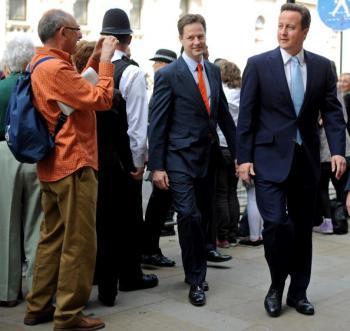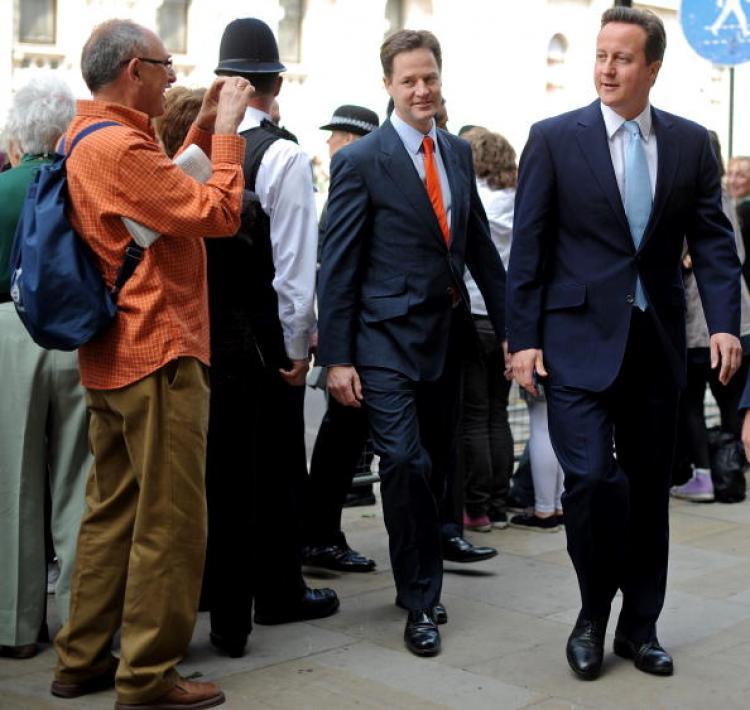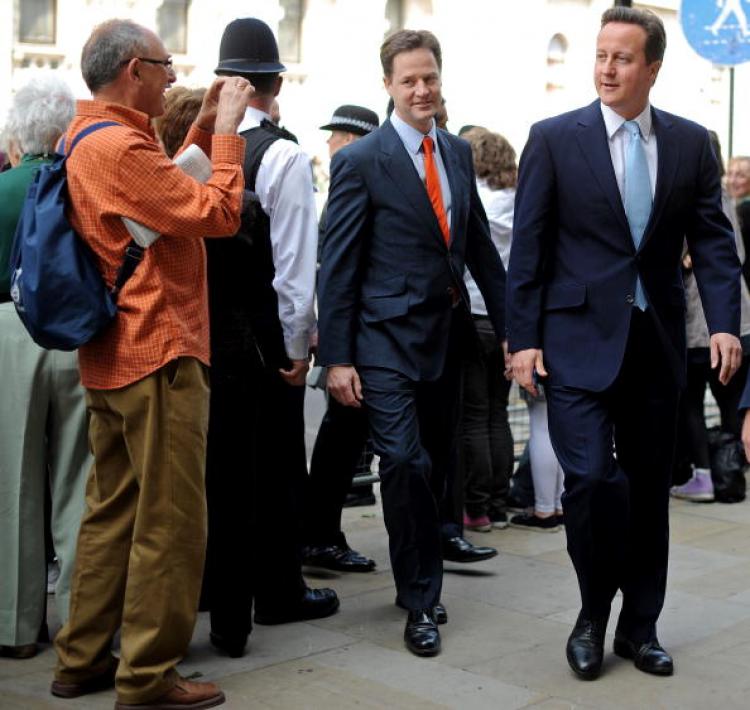Coalition Government sets out ‘Radical Programme’
Goverment announce twenty-two bills over the next 18 months including education, the political system, and policing.

A member of the public (L) takes a photograph of Britain's Conservative Prime Minister, David Cameron (R), and Liberal Democrat Deputy Prime Minister, Nick Clegg (2nd L), as they walk to the Houses of Parliament to attend the State Opening of Parliament. Ben Stansall/AFP/Getty Image

Simon Veazey
Freelance Reporter
|Updated:





